Reap the benefits of closed-circuit scuba at Wakatobi Resort, where rebreathers have been a staple since the early days

The reef system surrounding Wakatobi Resort presents divers with an impressive array of underwater topographies with profiles beginning a mere one to three metres (3–10 feet) from the surface plunging to drop-offs bounding into the abyss. For opencircuit divers, a single bottle will easily provide a run time of 60 to 70 minutes without even going into deco. The one limiting detail is depth, as recreational divers are pretty much confined to the upper part of these reefs, between the surface and 39 metres (128ft). For these divers, what lies beneath will remain a mystery, unless of course they happen to be diving a closedcircuit rebreather.
While this sophisticated underwater breathing apparatus has in no way replaced the widespread use of open-circuit scuba, their popularity has grown substantially. In addition to the benefits of delivering warmer, moister gas for the diver to breathe, which can go a long way in reducing the loss of body heat and dehydration for added comfort, the most beneficial aspects of a closed-circuit rebreather (CCR) is the ability to provide extended range dive profiles in terms of both depth and time. Then there is the silent factor, as most rebreathers can perform this task without making hardly any noise at all, which often allows divers to approach marine life without startling them.
The one complication for diving CCRs in remote locations around the world is the operations offering support must be able to provide more than a sufficient supply of pure oxygen and absorbent medium for the rebreather’s scrubber as well as air, nitrox or even helium for the unit’s supply cylinders and bailout tanks. The operation’s staff should have adequate knowledge and understanding of CCR diving, as they often encompass modified diving itineraries to accommodate longer run times.
AMONG THE FIRST
この記事は Asian Diver の Issue 02 - 2019 版に掲載されています。
7 日間の Magzter GOLD 無料トライアルを開始して、何千もの厳選されたプレミアム ストーリー、9,000 以上の雑誌や新聞にアクセスしてください。
すでに購読者です ? サインイン
この記事は Asian Diver の Issue 02 - 2019 版に掲載されています。
7 日間の Magzter GOLD 無料トライアルを開始して、何千もの厳選されたプレミアム ストーリー、9,000 以上の雑誌や新聞にアクセスしてください。
すでに購読者です? サインイン
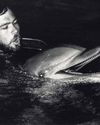
The Sea Specialist: An Interview With Bret Gilliam
Most people learn to crawl before they walk, but there is a man who learned to swim before taking his first steps. Diver, entrepreneur, writer, athlete, maritime specialist – Bret Gilliam is the complete package. Just add water.
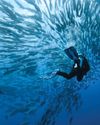
The Best Of Diving In Southeast Asia: Explore The Amazon Of The Seas
Southeast Asia encompasses the world’s most biodiverse reefs and some of the best diving anywhere on the planet. From the tiniest and rarest critters to huge fish schools and the biggest pelagics, the region has it all, and there’s something to suit divers of any level.
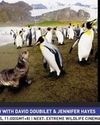
Below With David Doubilet & Jennifer Hayes
Best known for their work with National Geographic, David Doubilet and Jennifer Hayes came together to discuss their work with the youth, and, as Jennifer put it, “submerging with the emerging talent”.
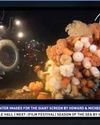
Underwater Images For The Giant Screen
Howard and Michele Hall are best known for their success in underwater IMAX filmmaking.
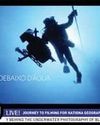
Journey To Filming For National Geographic Wild Brazil
Cristian is an acclaimed and highly versatile Brazilian wildlife filmmaker who works both underwater and topside.
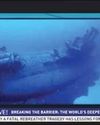
Breaking The Barrier: The World's Deepest Dive
David Strike shared a brilliant presentation about the history of deep diving and how Lt. George Wookey achieved the world’s deepest dive in 1956 using a surface-supplied rebreather.
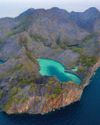
Dive the Golden Land
The Best of Diving In Southeast Asia

OFFICIAL LAUNCH OF BLUE HOPE
Top Session of the Week (14,319 (Views) / 42,831 (Reach)
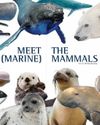
MEET THE (MARINE) MAMMALS
MEET THE (MARINE) MAMMALS

Fashion Faux Pas
What can be done to mitigate the impact of the garment industry on our oceans?